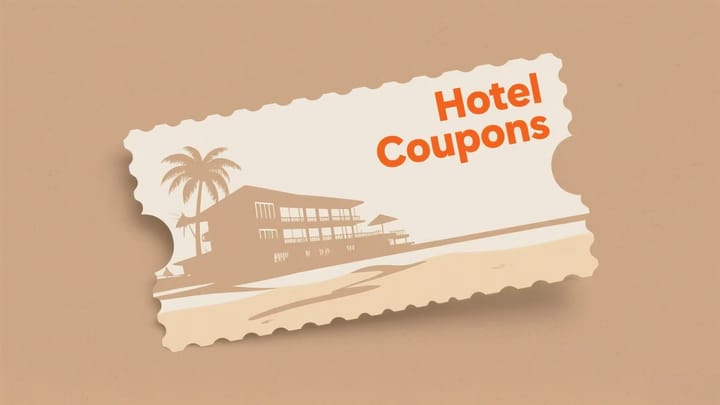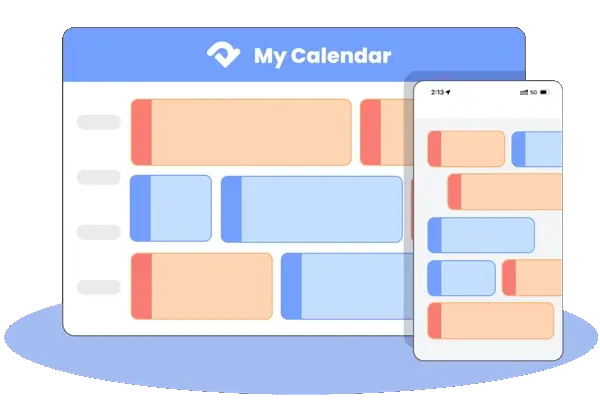In the highly competitive hotel industry, travelers have numerous options. When they compare places, price often wins. That’s where coupons, hotel deals, and promo codes help. They can make guests pick your hotel. Those tools don’t just bring in new guests—they also get more direct bookings, cut back bookings on third-party sites, and fill empty rooms when it’s slow.
A smart coupon approach isn’t just about discounts. It shows you get what guests want. It rewards loyalty and makes your brand feel friendly and guest-focused. Let’s be honest: for hotels wanting to compete, using coupons and promo codes well isn’t just nice to have anymore. It’s a key part of today’s marketing.
What Are Hotel Coupons?
Hotel coupons are price incentives that lower the cost of booking a room, add extra value to a package, or provide exclusive benefits. They can take many forms:
- Digital coupons: Offered through email campaigns, social media, or the hotel’s booking engine.
- Promo codes: Short codes that guests enter during checkout on the hotel’s website to unlock discounts or perks.
- Printed vouchers: Still used in some local markets or in partnership with travel agencies.
- Mobile app coupons: Found in hotel apps or third-party travel apps for instant use.
These coupons and codes make it easy for travelers to grab special rates. They also let hotels see exactly which marketing efforts are working. Unlike broad discounts, you can aim them at specific groups, times of year, or booking sites.
Think of it this way: a “hotel deal” is the whole offer, whether it's a "package," a "rate," or a "promotion." The promo code is just the key you use to unlock that deal when you book.
Why Should Hotels Offer Hotel Coupons?
The common fear among hoteliers is that coupons "devalue" the brand. However, a strategic coupon program does the opposite: it helps you achieve specific financial and operational goals that other pricing models can't touch.
1. Winning the Direct Booking Battle
OTAs charge hefty commissions, often between 15% and 30%. A hotel promo code offering a 10% or 15% discount still saves the hotel significantly more than paying the full OTA commission. You are simply reallocating the money you would have given to a third party into a benefit for the guest, thereby cultivating a direct relationship from day one.
2. Dynamic Occupancy Management
Hotels are perishable goods. An empty room tonight is lost revenue forever. Coupons are invaluable for filling distress inventory—those mid-week nights, low-season gaps, or specific shoulder-season weeks that are historically slow. By offering a deep, time-sensitive deal during these periods, you secure revenue that would otherwise vanish.
3. Boosting Length of Stay (LOS)
A well-designed hotel deal doesn't just cut the price; it incentivizes behavior. Offering a free night or a significantly higher percentage discount for a minimum length of stay (e.g., "Book 3 Nights, Get the 4th Free") instantly increases the total revenue per stay and lowers the cost of cleaning and turnover.
4. Effective Marketing Channel Tracking
Digital marketing is meaningless without data. Every unique promo code you create allows you to precisely track which marketing channel is driving conversions. This data is critical for optimizing your ad spend and allocating your budget to the highest-performing sources.
Types of Hotel Coupon Strategies
Not all discounts are created equal. The most successful hotels use a variety of hotel coupon types, carefully matched to their current business needs.
1. The Value-Add Coupon (The Smartest Approach)
Instead of simply offering "15% Off," which trains guests to look for discounts, focus on perceived value. These hotel deals protect your Average Daily Rate (ADR) while enhancing the guest experience:
- The Experience Bundle: Free Spa Treatment Voucher, Complimentary Parking, or Dining Credit.
- The Comfort Upgrade: Guaranteed Room Upgrade (based on availability) or Complimentary Premium Wi-Fi.
- The Foodie Deal: Free Daily Breakfast for Two.
Guests often value these perks more than the cash equivalent, and the cost to the hotel (the marginal cost of a plate of eggs or a parking spot) is minimal compared to a deep room rate discount.
2. Time-Sensitive and Limited Quantity Deals
These strategies harness the psychological principles of urgency and scarcity to force immediate action.
- Flash Sales: A promo code is live for only 48 hours. This is excellent for last-minute revenue generation or filling a slow period that’s approaching fast.
- Limited Codes: "Only the first 50 bookings will receive this deal." This exclusivity makes the guest feel like they are getting a rare privilege, encouraging them to book immediately before the codes run out.
3. Audience-Specific Codes
Segmenting your audience allows you to offer deep discounts without devaluing the public-facing rate. The discount is justified because it’s tailored to a specific, high-value segment.
- Loyalty Codes: Exclusive promo codes sent only to past guests. This is the cheapest way to acquire bookings because the guest already knows and loves your brand.
- Local Market/Staycation Deals: Codes targeted at those in your immediate geographic area. This fills rooms during weekends or holidays when business travel is slow.
- B2B/Corporate Codes: Negotiated discounts for specific companies or business travelers that protect your public rate.
4. Forward Planning Codes: Early-Bird Discounts
These hotel coupons are designed to improve your cash flow and forecast accuracy. By rewarding guests who book months ahead (e.g., offering 10% off for bookings made 90 days out), you secure revenue early and reduce uncertainty, allowing your revenue manager to make better pricing decisions for the remaining inventory.
5. Targeted Reach Codes: Affiliate and Influencer Promo Codes
These codes are powerful tools for customer acquisition outside your direct channels. Partner with travel bloggers, influencers, or affiliate websites and give them a unique promo code. This simplifies tracking the ROI of the partnership and introduces your hotel to highly engaged, new audiences.
6. Demand-Matching Codes: Seasonal and Event-Based Coupons
Tailor your hotel deals precisely to external events. A Seasonal Coupon (like a "Winter Wellness Package") encourages travel during slower periods, while an Event-Based Promo ("Marathon Weekend Deal") targets specific, known spikes in demand. This maximizes the benefit by ensuring the discount is relevant to the traveler’s immediate need.
Strategies to Design & Implement Effective Hotel Coupons
1. Define Clear Objectives
Understand what you aim to achieve: boosting occupancy in low seasons, increasing direct bookings, or rewarding loyalty. Objectives guide the size of discounts, timing, and promotional channels.
2. Know Your Target Audience
Analyze guest data to identify who responds best to deals — business travelers, families, or weekend leisure guests — and personalize offers for each group.
3. Keep Redemption Simple
A complicated process can frustrate potential bookers. Ensure your booking engine accepts codes easily on both desktop and mobile platforms. Clarity builds trust and reduces booking abandonment.
4. Promote Across Multiple Channels
Share coupons and promo codes through email newsletters, social media ads, your website banner, and retargeting campaigns. A consistent presence increases visibility and drives action.
5. Use Urgency and Scarcity Tactfully
Limited-time offers or a cap on redemptions can motivate quicker decisions. Ensure deadlines are clear and realistic so they feel persuasive, not gimmicky.
6. Protect Your Brand Value
Don't slash prices so much it feels desperate. Frame deals as special or seasonal. Focus on value, not just being cheap. Your reputation matters.
7. Track, Measure, and Adjust
Monitor which channels deliver the most redemptions and highest ROI. Use tools like Google Analytics or your property management system to track coupon use and tweak future campaigns.
8. Integrate with Loyalty Programs
Give repeat guests special codes or bonus points. Mixing deals with loyalty perks keeps them coming back without constant discounts.
Conclusion
Hotel coupons, well-timed deals, and targeted promo codes are more than short-term marketing tactics. They help hotels remain competitive, attract price-sensitive guests, and increase occupancy during low-demand periods. By offering value in a thoughtful and data-driven way, hotels can create positive guest experiences and strengthen long-term relationships.
The most successful strategies focus on relevance and simplicity — making the right offer to the right guest at the right time. For hotel owners who test ideas, track results, and adjust their plans, coupons and promo codes become powerful tools to boost bookings without hurting their brand.

